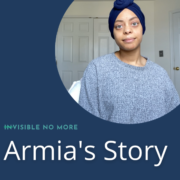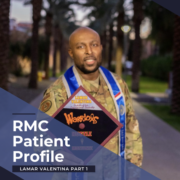Diagnosed with Renal Cell Carcinoma? Start Here
Diagnosed with Renal Cell Carcinoma? Start Here from Patient Empowerment Network on Vimeo.
What’s important for newly diagnosed renal cell carcinoma patients to know? Expert Dr. Moshe Ornstein from Cleveland Clinic discusses his approach to communicating with newly diagnosed patients and key points that he covers in educating patients about their treatment and care.
See More from START HERE Renal Cell Carcinoma (RCC)
Related Resources:

|

Exploring Renal Cell Carcinoma Research | Expert Insights on Immunotherapy and Targeted Therapy |

Expert Insights into Kidney Cancer Risk Factors and Genetic Testing |
Transcript:
Lisa Hatfield:
So, Dr. Ornstein, how do you explain a kidney cancer diagnosis to your newly diagnosed patients, and what are the priorities for those newly diagnosed patients?
Dr. Moshe Ornstein:
When I’m looking at a patient and their family with a newly diagnosed kidney cancer, I’m trying to think to myself a couple of things. Number one, how can I make it as easy to understand without withholding any information? How can I be as encouraging as possible, but at the same time without misleading the patient in terms of what’s to come?
The way I break it down is into two main categories. There is the patient that presents with a localized kidney cancer. So they came to the emergency room because they were having belly pain, and they were found to have a big mass growing in their kidney that is proven to be kidney cancer. And then there’s the patient who has advanced disease, metastatic disease that has spread beyond the kidney. Either they came in with metastatic disease, in other words, their kidneys in place, and they have cancer beyond the kidney. Or they already had a surgery a year or two ago, and now they come back, and the cancer has returned elsewhere in the body.
So for the patient that comes with a localized kidney cancer or kidney cancer limited to the kidney, I talk to them about what the diagnosis means in terms of what subtype of kidney cancer is it, meaning although most kidney cancers are clear cell renal cell carcinoma, there are other types of kidney cancer.
And I want them to have a good handle in terms of what they have, both so that they know and they have all the information they need, but also because I understand that most patients, or at least many patients are going to look for more information elsewhere. And without understanding the histology, the type of kidney cancer they actually have, I worry that they’re not going to get the right information. So I try to be very clear about what stage is it based on the scans or if they’re coming to see me after their surgery, what stage is it after the surgery?
What does it mean when something is a grade 1 versus a grade 2 versus a grade 3 in terms of what the cells look like under the microscope? That’s about the cancer. And then I talk to them about what we’re going to look for in the future. So again, we’re talking now about the patient with localized kidney cancer. I try to go through with them what the risk of that localized cancer is in terms of what the odds are of it coming back.
We talk about what kind of surveillance, what kind of watching or monitoring of the cancer are we going to do, how often they’re going to get CAT scans. So really try to give them the big picture about what cancer they have, what the outlook is, and what we’re going to do to keep a close eye on them. For the patient who has an advanced cancer, in some ways it’s similar. When I say advanced, I mean a cancer that has spread beyond the kidney that’s going to require therapy, immunotherapy, targeted therapy, a clinical trial, whatever it might be.
And again, super important for them to understand, is this a clear cell kidney cancer? Which is the most common? Is it a papillary kidney cancer? Is it something else? Then we talk about what the different treatment options are. What does the short term look like in terms of side effects? What does the short term look like in terms of getting the cancer under control? What does the long-term outlook look like? What are the possible long-term side effects? And then what are we going to do to monitor? Are we doing CAT scans? Are we doing MRIs? Are we doing imaging of their brain? So again, first and foremost, what’s the nature of the diagnosis, what the treatment options are and likely side effects, what they need to look out for, and then how we as a medical team are going to monitor this over hopefully the long run.






![[ACT]IVATED AML [ACT]IVATED](https://powerfulpatients.org/wp-content/uploads/ACTIVATED-AML-180x180.png)


